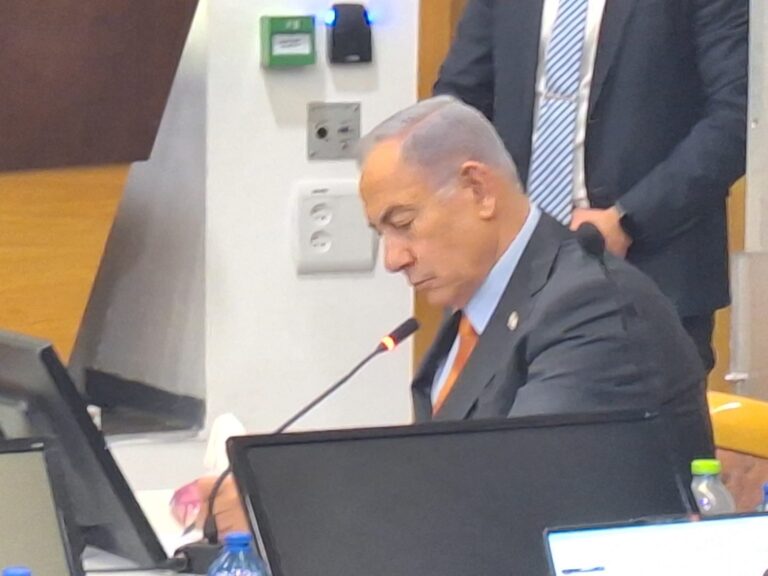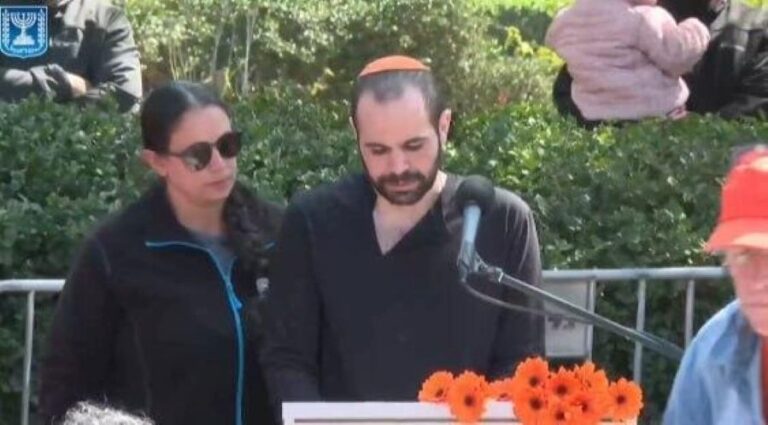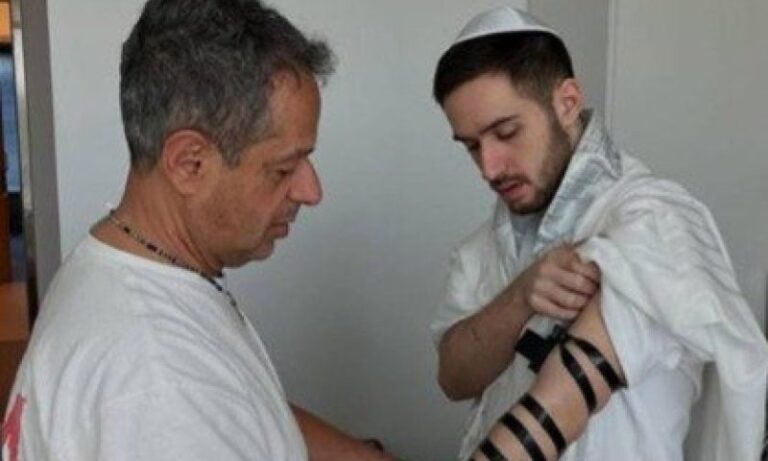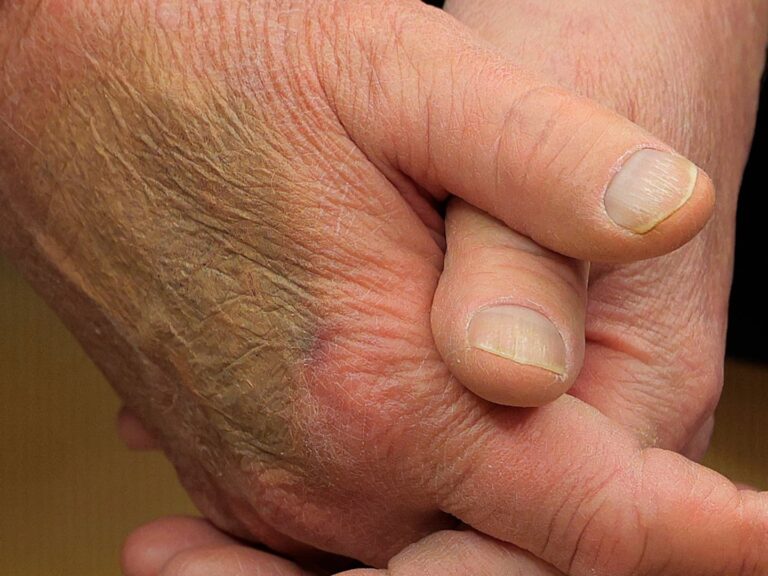 By Rabbi Yair Hoffman for the Five Towns Jewish Times
By Rabbi Yair Hoffman for the Five Towns Jewish Times
Kees Veldboer is an ambulance driver who founded an organization called, “the Ambulance Wish Foundation.” The organization helps the terminally ill fulfill their dying wishes.
Veldboer founded the organization in November 2006 after having moved a terminally ill patient from one hospital to another. Just after they put the patient, Mario Stefanutto, on the stretcher, they were told that the receiving hospital wasn’t ready yet. Stefanutto had no desire to get back in the hospital bed where he had spent the past three months, so Veldboer asked if there was anywhere else he would like to go.
The retired seaman asked if they could take him to the Vlaardingen canal, so he could be by the water and say his final goodbye to Rotterdam harbor. “Tears of joy ran over his face,” Veldboer recalled. “When I asked him: ‘Would you like to have the opportunity to sail again?’ he said it would be impossible because he lay on a stretcher.”
Veldboer wanted to make this man’s last wish come true. He asked his boss if he could borrow an ambulance on his day off, recruited the help of a colleague and contacted a firm that does boat tours around Rotterdam harbor. Everyone was happy to help.
The following Friday, the ambulance driver turned up at his hospital bed to take him sailing.
In a letter written just before his death – Stefanutto wrote, “It does me good that there are still people who care about others… I can tell you from my own experience that a small gesture from someone else can have a huge impact.”
Veldboer says, “I have learned that people who are going to die have little wishes.”
Clearly, the ambulance driver fulfilled a great Mitzvah. When the dying man is still alive, the Mitzvah is one of v’ahavta larayacha kamocha – a Torah Mitzvah. But what about fulfilling a dying person’s wish after he has already passed on? Is that too a Torah Mitzvah? Or is it perhaps of rabbinic origin?
NO SOURCE OR REASONING IN SHAS
The Gemorah in several places (see Gittin 35a, Rashi Kesuvos 69b) discusses the notion of “Mitzvah lekayem divrei hamais” which literally means, “it is a Mitzvah to fulfill the words of the deceased.” The concept is codified in Shulchan Aruch (CM 252:2) as well.
Yet, interestingly enough, the Gemorah provides no source or reason for this Mitzvah. Who made it? What was the rationale behind it?
VIEW THAT IT IS RABBINIC IN ORIGIN
The Baalei Tosfos (Kesuvos 66a “Priyas”) write that the Mitzvah is of Rabinic origin. They too provide no explanation as to why this was enacted. Nor is there any time frame or discussion as to when the Rabbinic enactment took place.
VIEW THAT IT MAY BE BIBLICAL
The Sho’el uMaishiv (Mahadurah #3 Vol. II #63 fourth “Ubazeh”), on the other hand, cites the Mahari Ibn Shoav seems to learn that the Mitzvah is one of Chesed shel Emes toward the dead – since the dead have nachas ruach when their will is fulfilled. This is a biblical Mitzvah of Chessed.
The Ramban (Bereishis 3:12) states that one of the ten things that we learn from the commandment of Yaakov Avinu to his sons is that it is a Mitzvah to fulfill the words of the deceased. It is possible that the Ramban is merely giving us a biblical allusion to a future Rabbinic enactment, much like the asmachta that is found in the Gemorah.
FASCINATING EXPLANATION OF MAHARIT ALGAZI
Rabbi Yom Tov Algazi (1727-1802), also known as the Maharit Algazi, writes (Simchas Yom Tov #29) that the essential Mitzvah was to reassure the deceased before he passes away that his request will be fulfilled. Otherwise, the deathly ill patient will becomes depressed out of concern that his wishes will not be fulfilled. The rabbinic enactment of fulfilling the will of the deceased reassures him.
With this explanation of the Maharit Algazi in hand – we can say that, in fact, although it is a Rabbinic enactment – it allows a Torah Mitzvah of v’ahavta l’rayacha kamocha to be fulfilled earlier. The children or the third party in charge of implementing his desires, by showing that they will follow the Rabbinic enactment after his death, are placing his mind at ease. This is a fulfillment of a Torah commandment.
IS IT LIMITED TO MONEY OR ANY WISH?
There is another question that also comes to mind. In the discussion in both Shulchan Aruch, the topic centers around the distribution of financial assets. But what about the wishes of the deceased beyond monetary issues? What if the wish of the deceased involved entering a field of study or some other area of desire that does not involve money?
This too is actually a three way debate among the Achronim.
THE VIEW THAT THE MITZVAH EXTENDS TO ALL MATTERS
Some are of the position that there is indeed such an obligation to listen to the words of the deceased in other areas too. This is the view of the Mahari Ibn Shoav that was cited earlier. This is also the view Rabbi Yechezkel Landau (1713-1793) of Prague, Czechoslovakia (See Noda BiYehudah MT EH #45).
Rabbi Yehoshuah Falk (1555-1614), student of the Ramah and author of the Sma commentary on Shulchan Aruch, writes (YD 353:9) that if someone commands that they not eulogize him after his death, they must listen on account of the notion of “Mitzvah lekayem Divrei HaMais.” A eulogy (hesped) is certainly within the rubric of “other matters” rather than finances.
THE VIEW THAT IT IS LIMITED TO MATTERS OF FINANCES ALONE
Yet others write that there is no Mitzvah beyond monetary issues. This is the view of the Tashbatz (Vol. II #53). Indeed, the Tashbatz writes that a person who is passing away is not considered as if he is a prophet, nor a king nor a leader, that those who are among the living must follow his decrees in all matters. The Tashbatz specifically limits it to matters of his own finances which are subsumed under the laws of inheritance.
Rabbi Malachi Ben Yaakov haKohain of Livorno, Italy (c. 1698-1772 , in his Yad Malachi (Klalei HaDinim #422) provides a fascinating proof from Kesuvos 103b that the Mitzvah does not apply to matters beyond finances from the fact that Rabbeinu HaKadosh commanded that after he passes away Rabbi Chanina should be seated at the head. Yet, his wishes were not adhered to in this matter.
This is also the view of Rabbi Yaakov Reischer (1661-1733), in his Shvus Yaakov (Vol. I #168). The Shvus Yaakov writes that one cannot find any Posaik who discusses that there is such an obligation regarding other matters. Before one takes the Shvus Yaakov to task for missing the Noda BiYehuda, it should be noted that the Noda BiYehuda came after the Shvus Yaakov not before him – which is why it is always a good idea to have a historic background when one studies achronim.
THIRD VIEW
Finally, there is a third opinion that there is a voluntary Mitzvah to fulfill the wishes of the deceased when it does not involve money, but that there is an obligatory Mitzvah to do so when finances are involved. This is the view of Rabbi Shmuel de Medina (1505-1589) of Thessaloniki Greece, better known as the Maharashdam in his responsum (YD #303). It is interesting to note that the Yad Malachi’s proof does not negate the position of the Maharshdam, as if it is only a voluntary Mitzvah, then matters of inconvenience can sway them not to observe it. This would not be the case if it was a full-fledged obligation.
CONCLUSION
It seems to this author that the halachic areas of dispute discussed above are on account of a debate as to the origin of the halacha. the view that there is no Mitzvah of fulfilling the wishes of the deceased beyond monetary issues are of the opinion that the concept is one that stems from the laws of inheritance. Those who view that there is a Mitzvah to do so in other matters are of the opinion that Mitzvah lekayem divrei hamais stems from the Mitzvah of Gmilas Chasadim or the verse of v’ahavta l’racha kamocha – love thy neighbor as thyself. What then is the source of the Mitzvah according to the Maharshdam? It seems that he would hold that it has two sources one of inheritances and one of chessed.
The author can be reached at [email protected]










